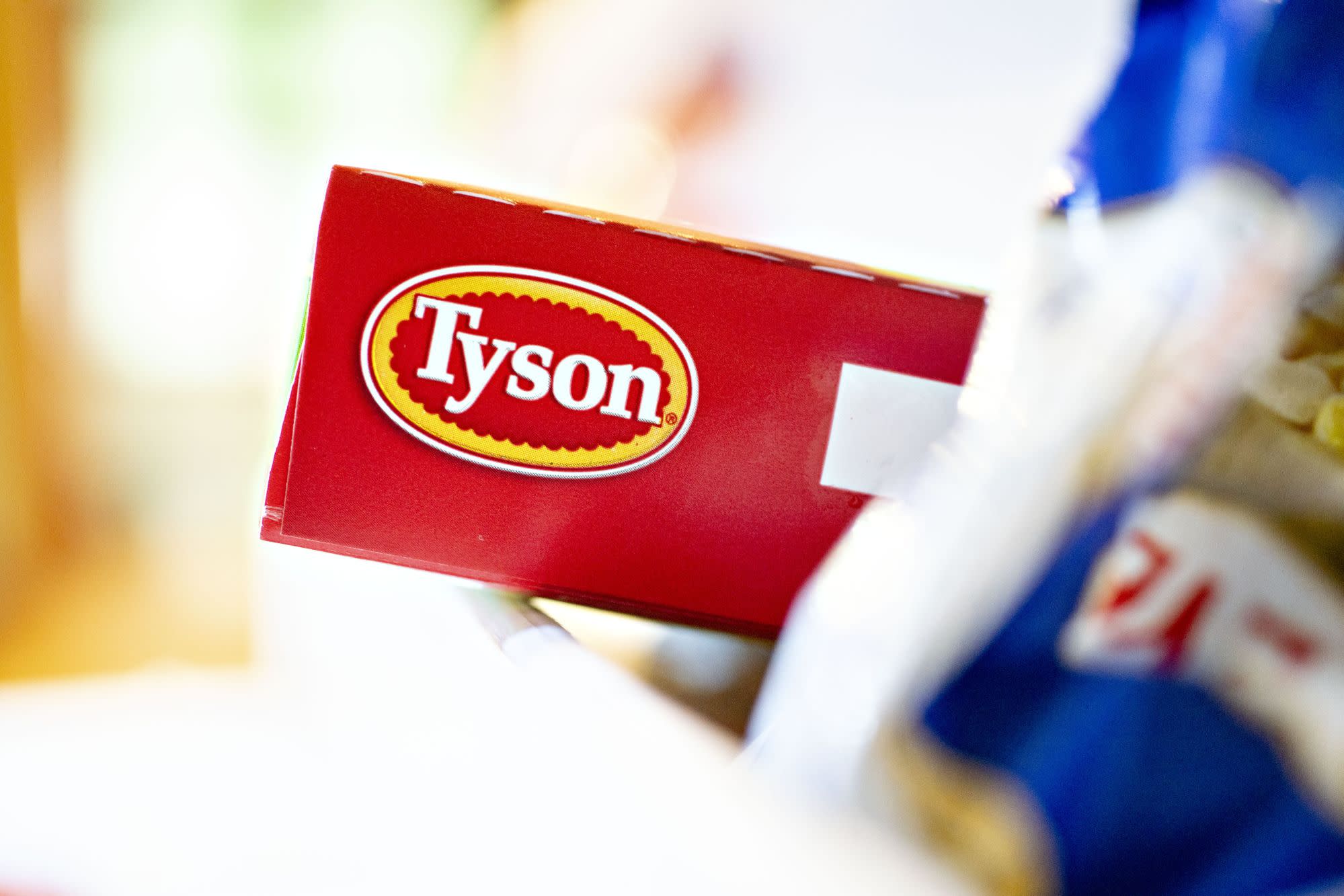Tyson Scrambles to Regain Chicken Profit as New Competitor Looms

(Bloomberg) — Tyson Foods Inc., the top poultry producer in the U.S., is racing to get its chicken unit back on track as a new, formidable competitor emerges.
The third and sixth biggest U.S. chicken companies, Sanderson Farms Inc. and Wayne Farms Inc., are combining in a $4.53 billion deal, according to a statement Monday from buyers Cargill Inc. and Continental Grain Co. The deal comes as Tyson’s chicken unit posted a loss in its third quarter amid a series of headaches including high feed prices, production challenges and millions in legal costs stemming from price-fixing lawsuits.
A bigger, better version of Sanderson Farms isn’t good news for Tyson. The company is “arguably the best chicken producer in the country, and perhaps the world,” JPMorgan Chase & Co. analysts including Ken Goldman said in a note. Returns over the years have been better than Tyson’s, and its market share increased as a result.
“Chicken is our top priority for me and for our company,” Tyson Chief Executive Officer Donnie King told analysts in a call Monday to discuss financial results. “We continue to be laser-focused and making progress in restoring the competitiveness of our chicken segment.”
Tyson Foods executives declined to comment on competitors, saying they’re focused on improving their own business.
The merger with Wayne Farms is also striking because of the recent attention that antitrust in the meat sector is attracting. The industry is growing ever more concentrated, and meat companies have argued that only scale can provide the world with affordable meat amid increasing demand. Still, legislators in the U.S. have begun scrutinizing the industry more than usual, and debating whether protein companies are too big and too few. In particular, the U.S. Department of Justice has charged several now-former executives of chicken companies with price-fixing.
Despite its chicken woes, booming demand for beef from restaurants reopening in the U.S. helped the company to beat estimates for both sales and profits. Tyson reported adjusted third-quarter earnings per share of $2.70, compared to an average estimate of $1.63, while sales came in at $12.48 billion compared with estimates for $11.49 billion.
Elevated prices for feed, freight and packaging also mean Tyson is getting squeezed by inflation, which it estimated at 14% in the quarter. Some of that will be offset by price gains expected next month.
“Costs are hitting us faster than we can get pricing at this point,” King said.
Shares for the meat giant rose as high as 6% to $75.39, while Sanderson Farms touched a record $195.97.
Other highlights in Tyson’s earnings include:
The company’s operating income declined due to higher legal fees, weather and Covid-19-related disruption and problems with hatching rates in the chicken unit.For fiscal 2021, Tyson estimates $325 million in expenses associated with the impact of COVID-19 with some becoming permanent over time.
(Updates throughout including CEO comment in fourth paragraph.)
More stories like this are available on bloomberg.com
Subscribe now to stay ahead with the most trusted business news source.
©2021 Bloomberg L.P.




